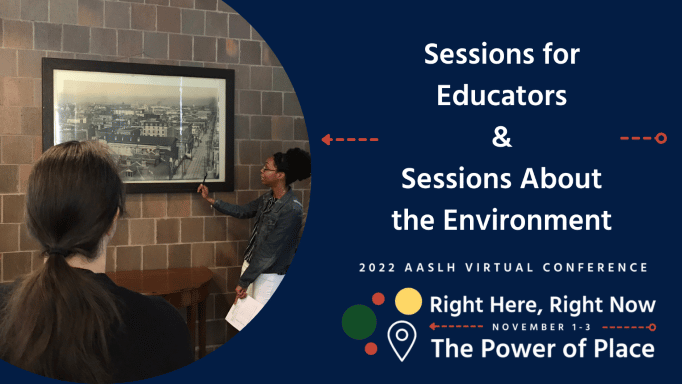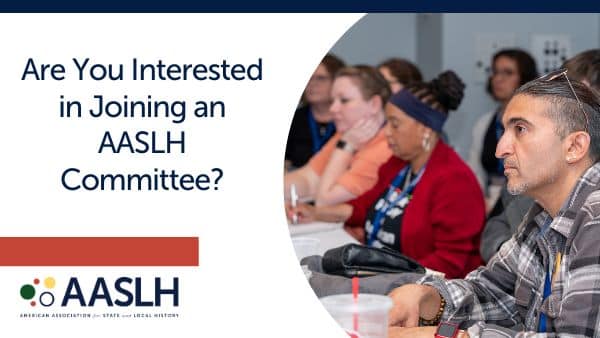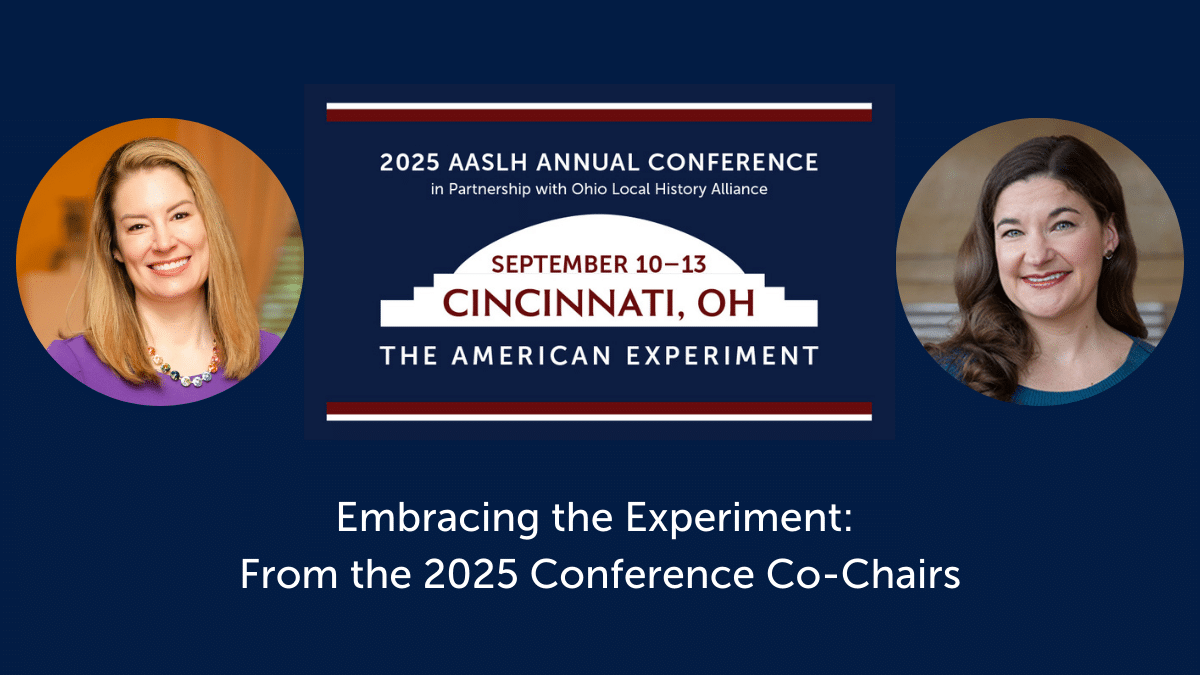The 2022 AASLH Virtual Conference is November 1-3. The pre-registration deadline is October 26. Registration is only $60 for AASLH members and $80 for non-members.
If you are an educator or if you are interested in creating programming connected to the environment, this year’s conference has sessions you won’t want to miss.
With your registration, you get access to all the sessions as they happen live and access to recordings of all sessions after the conference.
Sessions for Educators
Building Productive Academic-Community Collaborations, November 1 at 2 p.m. Eastern
This roundtable provides case studies of partnerships between educators, universities, and varied communities on public history projects. The session will offer a structured conversation about building relationships and creating mutually beneficial opportunities at the crossroads of educational institutions, community organizations, and local stakeholders.
Educators and Interpreters Happy Hour, November 1 at 6 p.m. Eastern
Join AASLH’s Educators and Interpreters Affinity Community to celebrate your “grow and glow” moments. Bring your wins to be celebrated and your worries and questions. Learn about the Educators and Interpreters Committee’s resources, meet new committee members, and hear what the committee has planned for 2023.
Moving Beyond Tokenizing School Activities, November 2 at 4 p.m. Eastern
Partners from higher education and public schools discuss ways to transform programming and curriculum in order to center Native peoples and communities, specifically the Six Nations of the Haudenosaunee Confederacy. Examples of piloted materials and their subsequent outcomes serve as grounds for conversation. Challenges and future directions will also be discussed.
Making Connections: History in Place Through a Digital Scholarship Lens, November 3 at 4 p.m. Eastern
Explore America’s past by harnessing digital media, curiosity, and inquiry. Storytelling via data collection/visualization/geospatial tools, citizen science, podcasting, and documentary filmmaking intersect space, place, and time in history classrooms, museums, and historic sites. Gain takeaway tools for integrating virtual and face-to-face exhibits and programming at museums and historic sites.
Virtual Field Trips: Lessons from the Field, November 3 at 4 p.m. Eastern
With both museums and schools now adept at virtual programming, how do we best serve a seemingly limitless audience with virtual field trips? What are the collective lessons that two-and-a-half years of pandemic programming have taught us about virtual visits. What worked? What didn’t, and where do we go from here? How do we balance and engage our virtual schools with those that are returning on-site? Join museum educators in the field for a lightning round session as we discuss the challenges, victories, and best practices for virtual field trips.
Sessions About the Environment
Interpreting the History of Water: Opportunities and Challenges, November 1 at 4 p.m.
Museum professionals with experience in the interpretation of water will lead a conversation on a topic flowing through many histories. Presenters and attendees will identify the role of water in our narratives, consider the analytical lenses that we use to understand water, and consider strategies for further collaboration and dialogue.
Activating Green Spaces at Historic Sites: New Models for Building Community Equity, November 2 at 4 p.m. Eastern
Learning from the recent experience of several Historic Germantown organizations in Philadelphia, participants will explore the dynamic of building audience and strengthening community equity through the intentional activation of gardens, lawns, courtyards, and other green space at a historic site or museum, and gain practical tools to use at their own site.
Climate and Sustainability Affinity Community Brown Bag, November 3 at 2 p.m. Eastern
The project Culture Over Carbon is examining energy use among all types of museums and other informal learning institutions. This session shares the process and preliminary findings related to history museums and historic sites. The project team will be joined by representatives of two sites participating in the project describing their experience and learning.
Find out more about other sessions and networking opportunities on the 2022 Virtual Conference page on our website.




